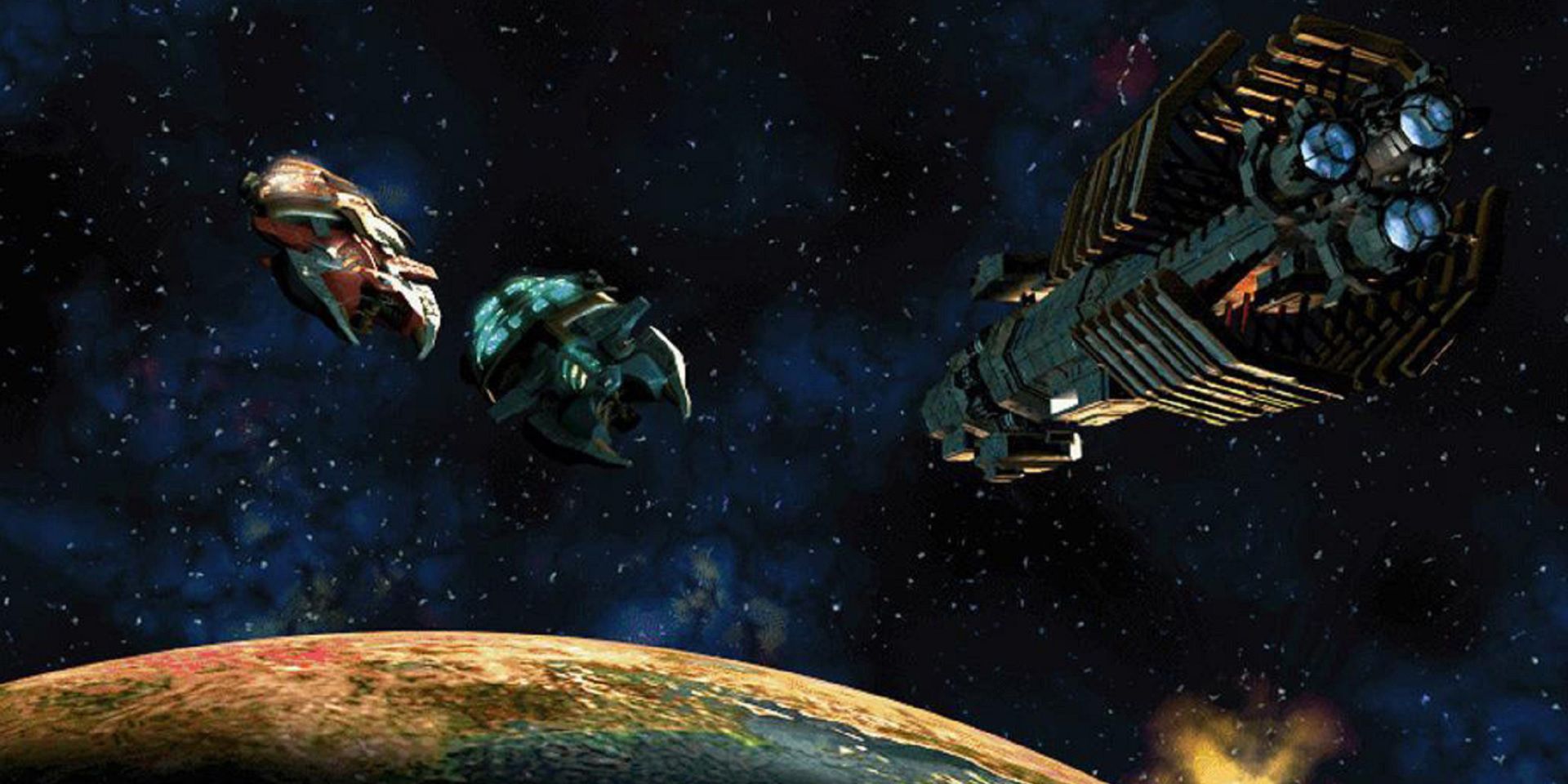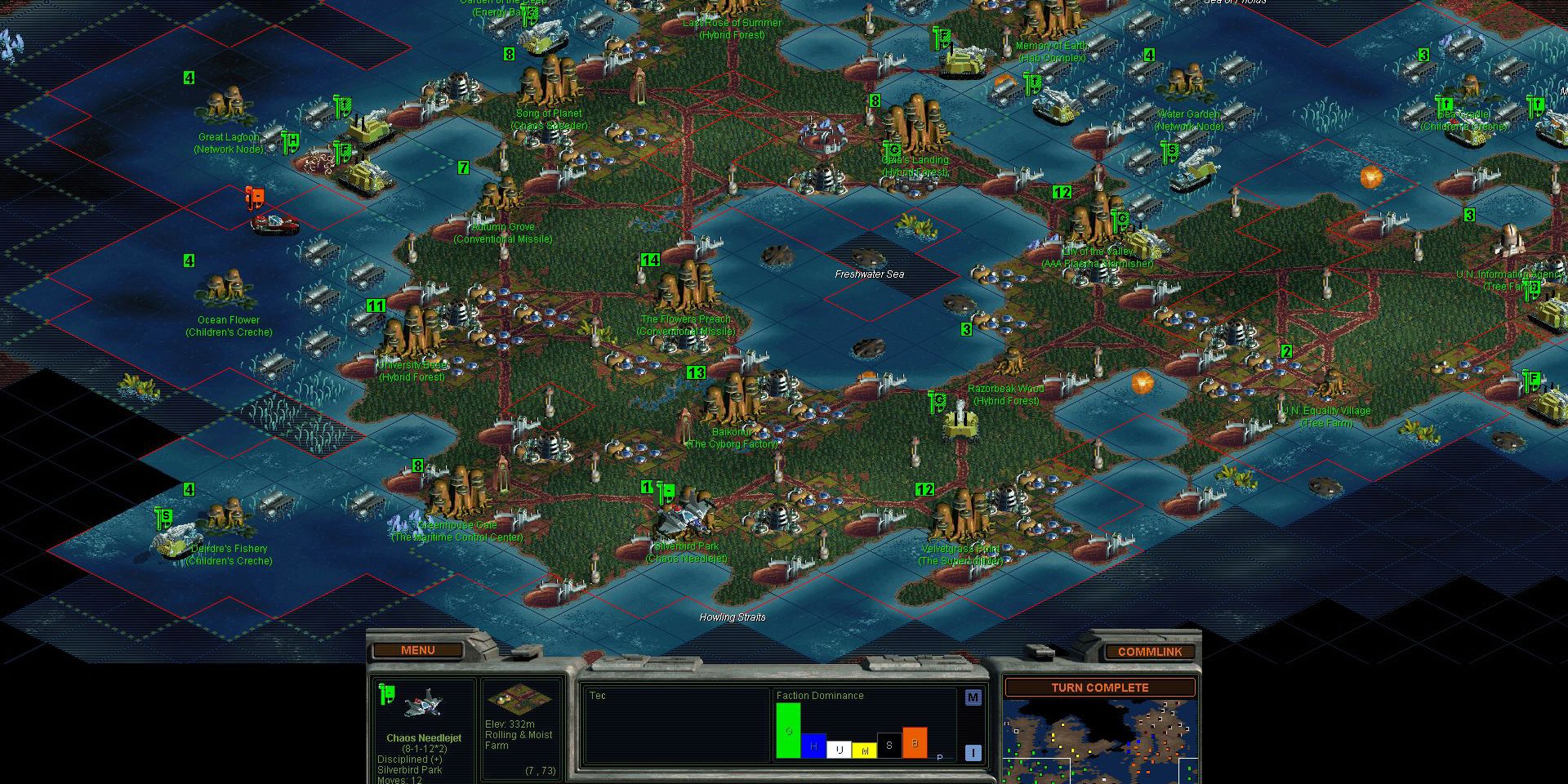While Sid Meier's Civilization is still ripping along as a series - the last expansion for 2016's Civilization VI arrived in March 2021 - it's easy to forget that developer Firaxis has done multiple spin-offs. The best of these is arguably Sid Meier's Alpha Centauri, released in 1999, which took the series out of ancient history and into the future. Especially since it's typically $6 or less on GOG, any true fan of Civilization (or strategy games in general) should definitely check it out.
The template is much the same - players guide a nascent faction as it expands geographically and economically. This means not just controlling cities, armies, and diplomacy, but researching inventions that can radically reshape options, from new materials and buildings to superweapons and new social structures. On the surface, the only difference between Civilization and Alpha Centauri is that players are settling a new planet in the 22nd century, swapping ancient technology for science fiction.
What makes Alpha Centauri special is that Sid Meier and designer Brian Reynolds took the idea of predicting the future seriously. The game's factions are split along ideologies instead of nations - they represent concepts like science, militarism, environmentalism, unfettered capitalism, and authoritarian communism. Ideas that are merely perks or paths in Civilization define the very goals a player pursues, giving them pause to think about how these would work in the real world. Factions that ignore the environment, for example, are going to face a particularly tough climb.
Alpha Centauri's Leap Into Possible Futures
The game's research tree gave developer Firaxis the opportunity to speculate on the future of both technology and human thought. While some of the possible discoveries are obvious, or are already areas real scientists are advancing on - Superconductivity, Quantum Machinery, Optical Computers and so on - it goes into some truly wild areas, such as Neural Grafting, Ethical Calculus, Temporal Mechanics, and ultimately The Ascent to Transcendence. The game is genuinely interested in exploring the bounds of human potential - and depravity.
Perhaps most importantly, Alpha Centauri is just a well-designed, well-balanced game. It produces that one-more-turn feeling that any good Civilization has, with the bonus of a speculative, semi-plausible setting where players may genuinely not know where events are headed. It can be tempting to play the prettier and more recent Civilization: Beyond Earth - but the two games are very different in tone despite nominally having the same premise. Alpha Centauri is one of a kind, and it deserves a true follow-up.


